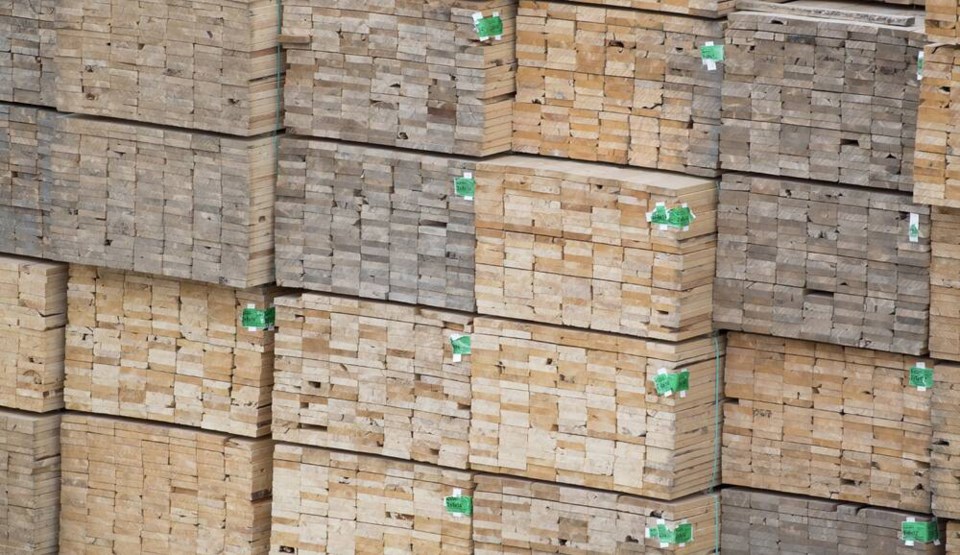A commentary by a Victoria resident who worked for the sa国际传媒 Forest Service for 40 years, holding senior professional positions in inventory, silviculture and forest health.
In two decades, employment in British Columbia’s forest industry has fallen by more than 40,000 direct jobs, and the industry today contributes only two per cent to sa国际传媒’s gross domestic product while employing only two per cent of the province’s workers.
Given this, why all the hullabaloo about the loss of 300 Canfor jobs in Prince George? And why another knee-jerk government response in the form of a new subsidy, amounting to $90 million?
This is the same old pattern repeating itself, a pattern of subsidization following an industry downturn that has contributed to the decline of the very industry that the subsidies ironically purported to support.
A flagrant example of government subsidies that has accelerated the crisis in our forests is a Ponzi scheme known as “crediting,” which awards some of the biggest forest companies in the province with more trees to cut down when they deliver “lower quality” logs to the province’s wood pellet and wood pulp industries.
Examples of other direct subsidies that have accelerated the loss of the province’s forests include those for forest management and electricity. The largest subsidies by far are indirect such as those for carbon and for the loss of carbon sequestration capacity. In recent years, the annual cost of all these subsidies is roughly equivalent to the industry’s contribution to the provincial GDP.
More beguiling than subsidies is industry propaganda. Through misrepresentation about sustainable forest management, the industry bamboozles the public and importers of sa国际传媒’s forest products with phoney certification schemes. The federal competition board is presently investigating two certification schemes for misrepresentation.
Even government politicians and senior government officials, who should know better, parrot the rhetoric of “sustainability” and sing the praises of certification, sending a false signal to the public that all is well.
Acting as a suction pump for public subsidies, the industry — dominated on the coast by Western Forest Products and in the Interior by Canfor and West Fraser — directly controls most of the timber in public forests and is largely self-regulated — quirkily known as professional reliance.
Given excessive subsidies and self-regulation, no one should expect the industry to rationalize its activities in the public interest by lowering the boom on logging, processing more logs in sa国际传媒 and reinvesting profits in secondary manufacturing facilities in the province.
Anyone doubting this need only ask why sa国际传媒 forest companies have invested so heavily over the last few years in mills and forest operations in Alabama, Arkansas, Mississippi, the Carolinas, Georgia and Louisiana.
sa国际传媒’s industry as presently constituted needs to fail completely, as must the weak legislative framework that allows it to clear-cut most of the province’s primary and old-growth forests to the detriment of biodiversity, soil, air and water.
We need to move from “fibre exploitation” to forest reparation. Only if we manage forests for the sustainability of biodiversity, soil, air and water, can we derive through sustainable use of forest resources the economic and social benefits that intact forest ecosystems bestow.
To do this, legislation must be repealed and re-written to place ecosystem management on a legally enforceable footing and forestry schools must be renamed: for example, the UBC Faculty of Forestry might be renamed to the UBC Faculty of Ecology. Foresters are a failed profession in sa国际传媒
Meanwhile, the export of raw logs and egregiously low-value products like wood pellets must be immediately halted. By curtailing these exports, we can reduce the supply of timber to move toward a sustainable rate of logging that provides for the economic needs of British Columbians to build houses and to make furniture and other value-added products.
Let the entrepreneurs have free-market access to the timber they need to build small-scale, community-based, secondary manufacturing facilities. This could be achieved by cancelling tenures and forest licences and by auctioning all publicly-owned timber at regional log markets.
But here expectations must be tempered. The promise of value-added only works if there are healthy forests containing quality wood. But first we must immediately bring logging rates way down and start to build a new, value-focussed industry from the ground up.



